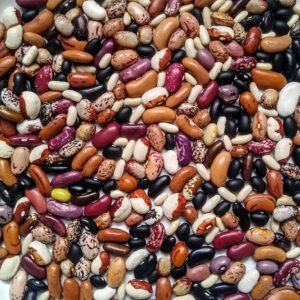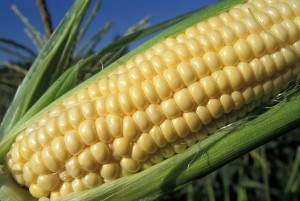
 OSA’s letter to USDA on a petition to deregulate drought-tolerant, genetically engineered corn
OSA’s letter to USDA on a petition to deregulate drought-tolerant, genetically engineered corn
Dear Secretary Vilsack:
We appreciate the opportunity to provide comments on the broad consequences of deregulating MON 87460 (Docket No. APHIS-2011-0023), a new corn trait genetically engineered (GE) for drought tolerance.
Because seed is the first and most vital resource in the production chain, the integrity of seed is paramount to the success of organic and non-GE farmers. Introducing yet another GE corn trait that is rejected by organic and non-GE farmers and the markets they serve – and, to date, has proven uncontainable – places even more undue burden on the organic and non-GE community. The Environmental Assessment does not take seriously the risks this new GE crop poses to this valuable and growing sector of agriculture. And we believe that any new GE crop under consideration requires a full Environmental Impact Statement that looks at any potential environmental, economic and social implications of introducing the new biotechnology trait.
Organic seed requires genetics free of transgenic material. Cross-pollination (and other routes of contamination) between GE and organic and other non-GE corn already increases production costs, eliminates markets for organic and non-GE producers, and harms the credibility of the organic label. Organic farmers and seed producers need seed that is free of transgenic material to meet USDA’s national organic standards, which require seed absent GE traits. In the event contamination occurs, organic and other non-GE seed producers need those who own, promote, and profit from GE seed technologies to be held responsible for the irreparable damage contamination causes.
Organic farmers and seed producers also need the organic label to remain credible, as consumers reasonably assume organic means GE-free. Many organic farmers and businesses know their customers well, and they know these customers expect their products to be free of GE traits. Any and all presence of such traits will cause their customers to lose confidence in their products.
Costs associated with contamination – testing for contamination, reimbursement for eradicating unwanted genetically engineered material from seed stock, lost premiums, and other costs – cannot continue to be borne by the organic and non-GE farming community. “Co-existence” has not been a reality with other GE corn varieties. Furthermore, any discussion involving the introduction of a new GE crop must be coupled with a contamination plan to protect non-GE seed and crops. At a minimum, there must be a contamination compensation fund of some kind that is paid by GE crop patent holders to provide immediate assistance to those who are contaminated.
When a product threatens to impact not just a single neighboring crop, but the integrity and viability of a farm and industry label, what recourse do those not choosing this technology have when seed genetics, markets, and reputation are harmed? Although both the organic and biotechnology industries acknowledge that GE material is moving into fields and markets where it is not allowed or wanted, little has been done to address the problem through regulatory processes and enforcement.
We urge you to take seriously contamination prevention strategies that adhere to principles of diversity, fairness, liability, precaution, sustainability, and transparency. Only then will we make progress toward protecting the integrity of organic and non-GE seed and feed sources.
Lastly, it is disconcerting that USDA continues to rely on data provided by the manufacturer petitioning for, and profiting from, the release of the product at hand. It is long past due that rigorous independent studies be initiated and considered by USDA in these decision making processes. This research must examine, for example, existing work on drought-tolerant corn bred and produced in organic and sustainable farming systems – research that does not rely on a technology that does not benefit, and indeed harms, farmers who rely on organic and sustainable farming systems, and marketplaces that do not tolerate the technology.
USDA also has the responsibility to bolster public programs involving classical plant breeding to meet the diverse needs of farmers without putting the integrity of a valuable and growing industry at risk. While both the biotechnology industry and USDA claim that GE crops are the solution to feeding our growing population, side-by-side comparisons show that genetic engineering does not have an advantage when it comes to producing better crops faster. Given this fact, the lack of attention and funding for classical plant breeding in the public sector is a critical issue that must be addressed through USDA’s research programs.
Thank you for your time and consideration of these comments.
Sincerely,
Kristina Hubbard
Director of Advocacy and Communications
Organic Seed Alliance
